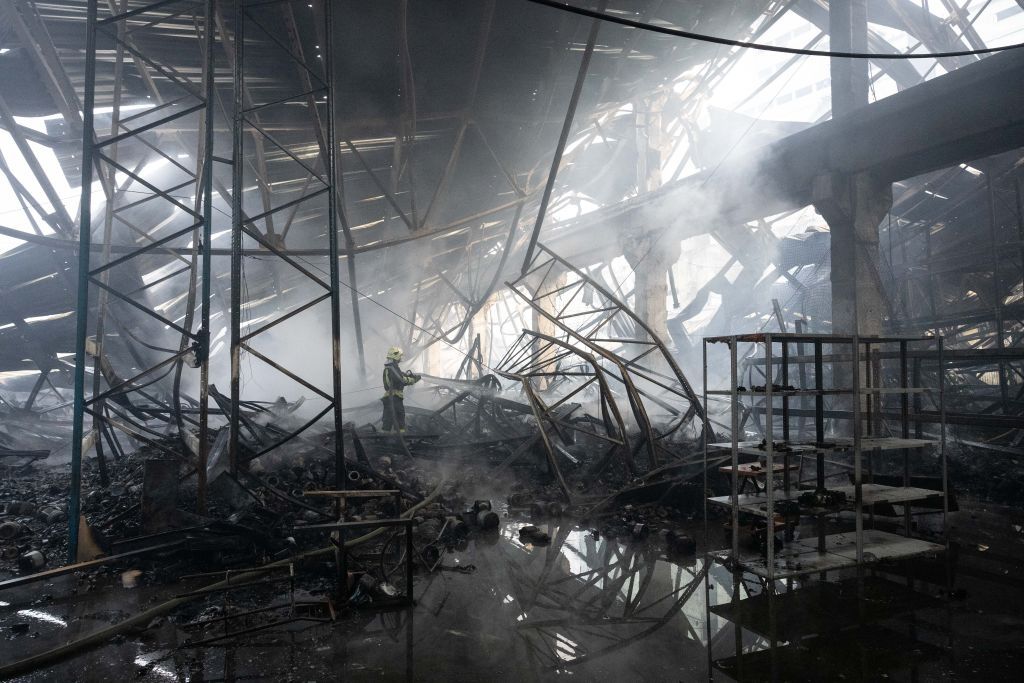Daily Flyer - January 15, 2024
A voice of Ukraine to the West

Ukraine downed Russian A-50 plane and IL-22 command aircraft
The Ukrainian Air Force has reportedly destroyed a Russian A-50 military aircraft and an Il-22 airborne control center, according to confirmation from Commander-in-Chief Valerii Zaluzhnyi on January 15. The statement follows earlier reports by Ukrainian media outlets about the downing of a Russian A-50 plane over the Azov Sea, with an Il-22 also allegedly damaged.
Zaluzhnyi expressed appreciation for the Air Force's well-executed operation in the Pryazovia region but did not provide further details. According to reports, the A-50 plane was shot down shortly after going on duty in the Kyrylivka area of Zaporizhzhia Oblast. The Il-22M was reportedly on duty in the Strilkove area of Kherson Oblast before being hit along the coast of the Azov Sea.
The A-50 aircraft plays a crucial role for Russia in the ongoing conflict, serving functions such as detecting air defense systems, guided missiles, and coordinating targets for Russian fighter jets. Russia has a limited number of these planes, possessing only nine.
This development comes after Ukrainian forces claimed to have destroyed four Russian planes in late December 2023, including three Su-34 supersonic fighter-bomber aircraft and one Su-34 fighter-bomber jet near the occupied Mariupol in Donetsk Oblast. The Ukrainian military suggested that Russian attacks in the Tavria sector significantly decreased after these losses.
Russian strikes targeting military-industrial infrastructure

Ukraine's Military Intelligence representative, Vadym Skibitskyi, stated in an interview with RBC Ukraine on January 15 that Russia's current winter campaign of missile strikes is primarily targeting Ukraine's military-industrial complex. This represents a shift from the previous winter when Ukraine's energy facilities were extensively targeted, according to Skibitskyi.
The U.K. Defense Ministry also highlighted this change in strategy in its January 3 intelligence report, suggesting that Russia might be anticipating a prolonged war where the relative defense industrial capacity becomes crucial.
While Ukraine has reported an increase in domestic production of weapons amid uncertainties regarding military aid from abroad, the shift in targeting highlights the evolving dynamics of the conflict. President Volodymyr Zelensky mentioned in December that domestic production of equipment and weapons tripled in 2023 compared to the previous year.
However, even when Russia targets military facilities, civilians are still at risk due to the imprecision of the weapons used, particularly the hypersonic Kinzhal missiles, as mentioned by Skibitskyi. The power system in Ukraine also remains under threat, with Russia identifying critical facilities that can be precisely targeted with missiles and drones.
On January 8, twelve oblasts across Ukraine were left without power due to a combination of Russian attacks and adverse weather conditions.
Russia is planning a new offensive
The Institute for the Study of War (ISW) reported on January 14 that Russia is preparing for a new offensive in the coming weeks once the ground in southern and eastern Ukraine freezes. Various Russian sources are claiming that a large offensive effort will be launched sometime between January 12 and February 2, after the ground freezes and Ukraine becomes "exhausted" in defending its position. It's noted that while the number of personnel on the frontline enables Russia to conduct localized activities, the Russian military may not be able to support operationally significant "breakthroughs."
The cold weather conditions are impacting ground activities on both sides, and Ukrainian forces in southern parts of the country have reported that Russian aviation cannot operate in the region due to freezing weather.
ISW previously assessed that frozen conditions are likely constraining operations along the front. Russia may try to sustain or intensify localized offensive operations across eastern Ukraine to gain and maintain the initiative despite less favorable winter weather. However, ISW also assesses that Russia may not be able to achieve operationally significant breakthroughs.
Additionally, ISW reports that the Russian Investigative Committee will officially launch an investigation into the massive fire at a warehouse in St. Petersburg on January 13, belonging to one of Russia's biggest online stores, Wildberries. Arson is considered one of the possible causes, and the damages from the blaze could exceed 11 billion rubles ($125 million).

